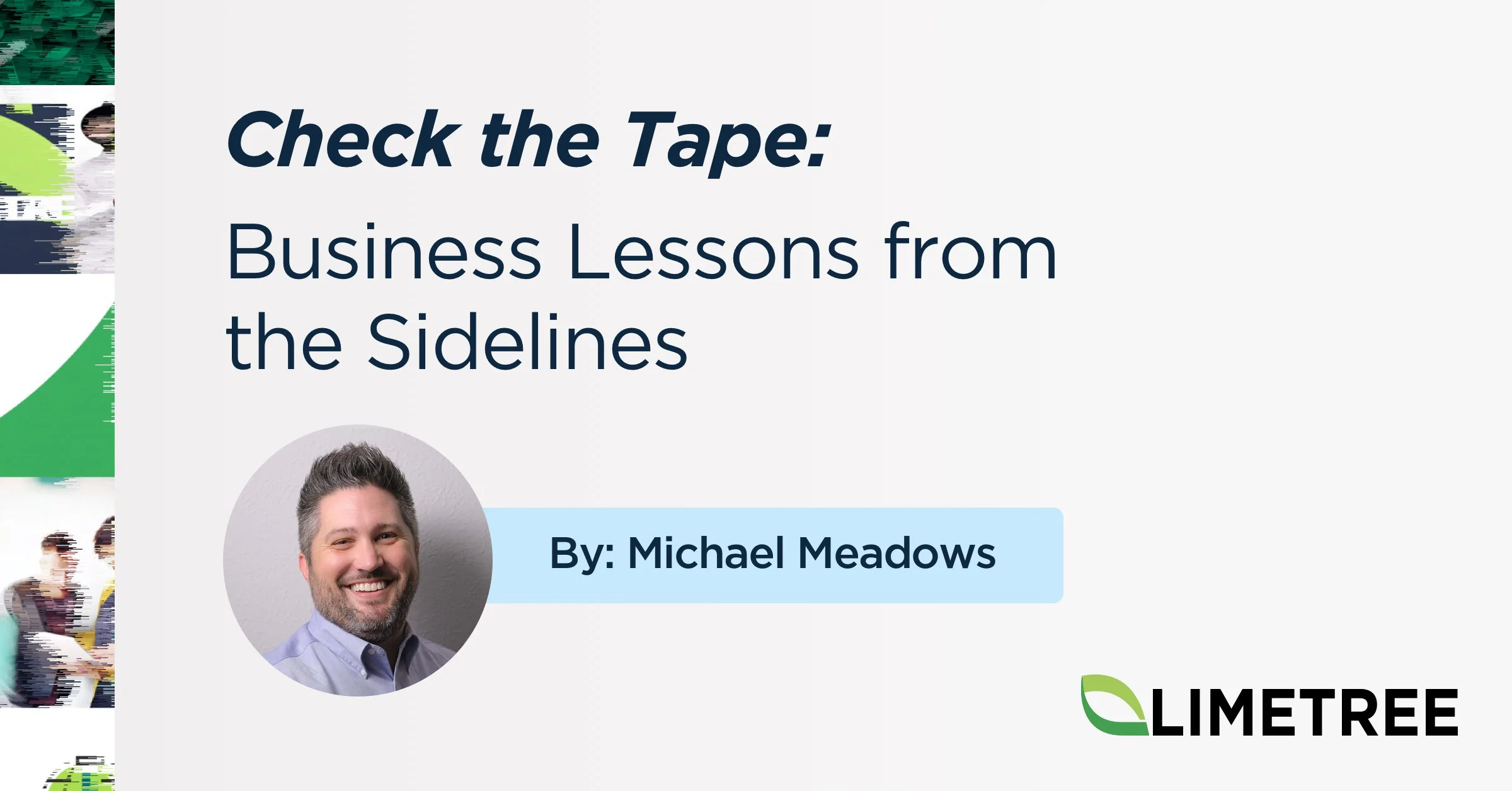Check the Tape: Business Lessons from the Sidelines
Michael Meadows discusses how business strategies and NCAA team strategies align.
By: Michael Meadows
At Limetree, we believe that the combination of the right people and the right system drives our success. I was reminded of that recently while watching game tape with a football coach of an NCAA FBS Program. And no, I’m not here to talk about blitzes or break down game plans. What surprised me was just how much it made me rethink the way we lead, build, and deliver our “play calls.”
Football teams dig into every detail… each play call, situation, outcome, who excelled or faltered, and whether it was mental preparation or physical execution. What stood out to me wasn’t the footage. It was the invisible strategy behind it, and how it resembled a well-run business despite being a full-contact chess match that evolved over 60 minutes.
Every play is designed to look familiar at first. Once a snap or motion occurs, players pivot based on what the opponent reveals against their original plan. It’s a strategy with flexibility… frameworks shaped by data and tuned to human behavior in real-time. Sound familiar? It sure did to me.
I walked in expecting football, but I walked out thinking about business. And how what I saw on screen plays out in what we do.
Behind-the-scenes... strategy matters. On tape, a “missed” tackle wasn’t a breakdown… it was containment by design to limit impact. A third-down run? They were setting up a fourth-down play all along. Coaches know the film doesn't just show execution; it also shows the process. It demonstrates decision-making, communication, and whether the system can withstand pressure. That kind of clarity is what we try to bring to both our client work and our own internal projects. Nothing happens by accident. If you're just looking at the final result without understanding the mechanics, you’ll miss how to get better.
Context changes everything. Not all third-and-threes are alike. Field position, variables, timing… it all matters. In business, each project or client meeting is unique. When people are aligned on the 'why' and 'how' of the plan, they can make smart calls on the fly, and that often determines success.
Adaptability isn’t optional. Opponents change every week, just like markets do. If your playbook is static, you’re eventually going to lose. You need to recognize that others are working on their game plan based on what you’ve done. Your plan should have room to flex, and your team needs to have the confidence and training to adjust on the fly.
Weak links hobble the whole team. This one’s tough, but true. If someone on the team can’t execute, it changes what’s possible. You’ll stop calling plays that could work, just to avoid the weak spot, and maybe worse, your opponent will scheme against it. That happens in organizations more than we admit. It’s our job as leaders to fix it.
Give talent room to operate. Great players make unexpected plays. They innovate. They create. Limetree isn’t a place that stifles that. If someone sees something that aligns with our mission, values, and client goals, we let them run with it. That freedom fuels our best outcomes.
Play to win tomorrow. It’s easy to look good against weaker competition. Smart coaches always ask: “Will this work when the stakes are higher?” We take the same long view. Each campaign, team hire, or new offering is judged not just on its short-term success but on how it positions us for the next client and the next challenge.
The more I think about it, the clearer it becomes. The difference between good teams and great ones isn’t just talent or planning. It’s what they do in the moment. Talent gives you a shot. The ability to shift gears and stay aligned is what turns that into a win against a similarly prepared opponent. What makes me proud isn’t just the work we’re doing or the wins we’ve had. It’s that we’ve built the kind of team that gives us the tape to learn from. We have plays to study. Real results to break down. Wins we can build on and gaps we can close.
That foundation matters. Because when you’ve got the right team, you don’t just celebrate what worked. You need to figure out why and how to do it even better the next time.
So yeah, fair warning… next time we’re reviewing a project, I might ask who filled the A-gap. Hope the team is ready!

